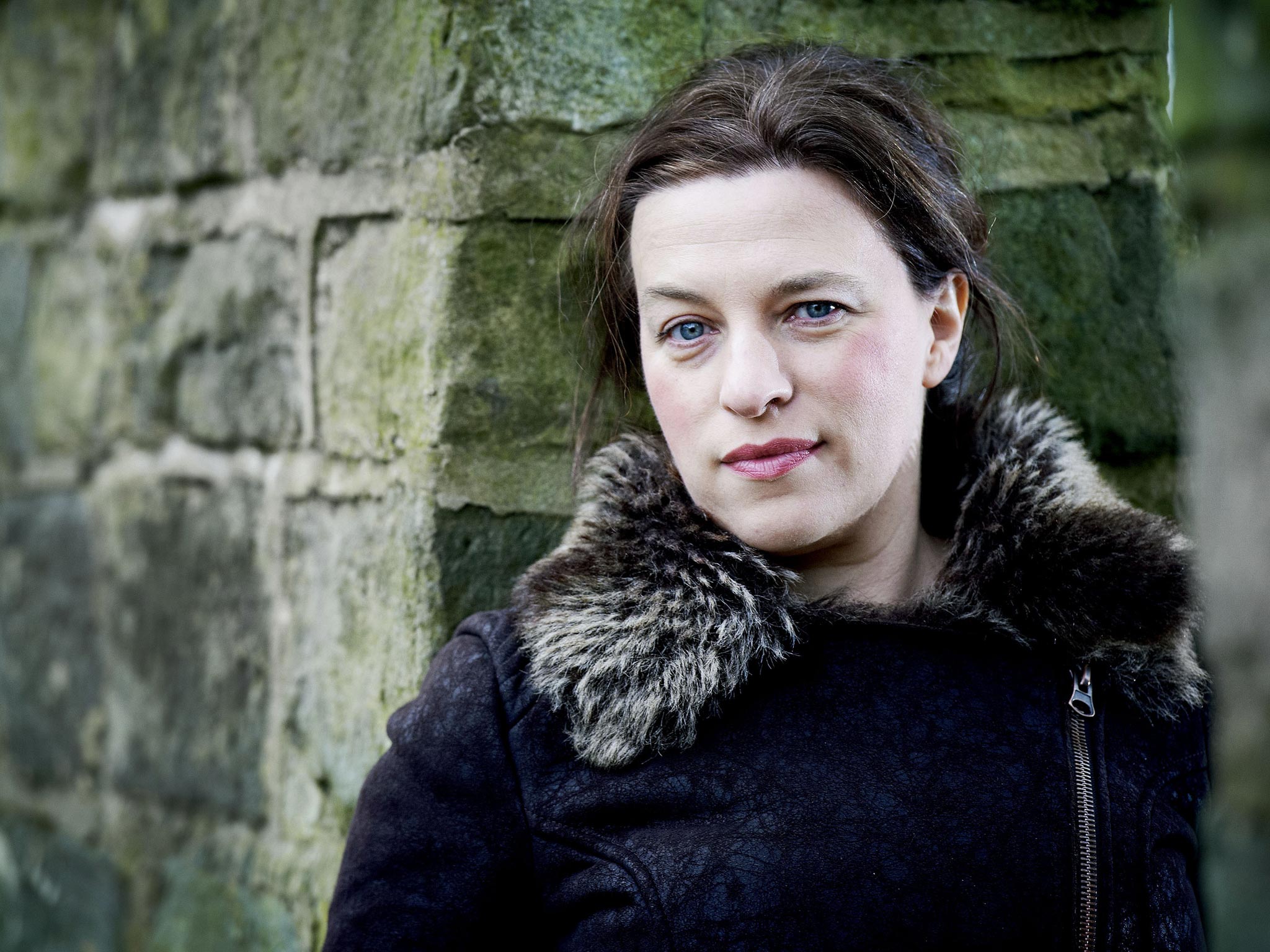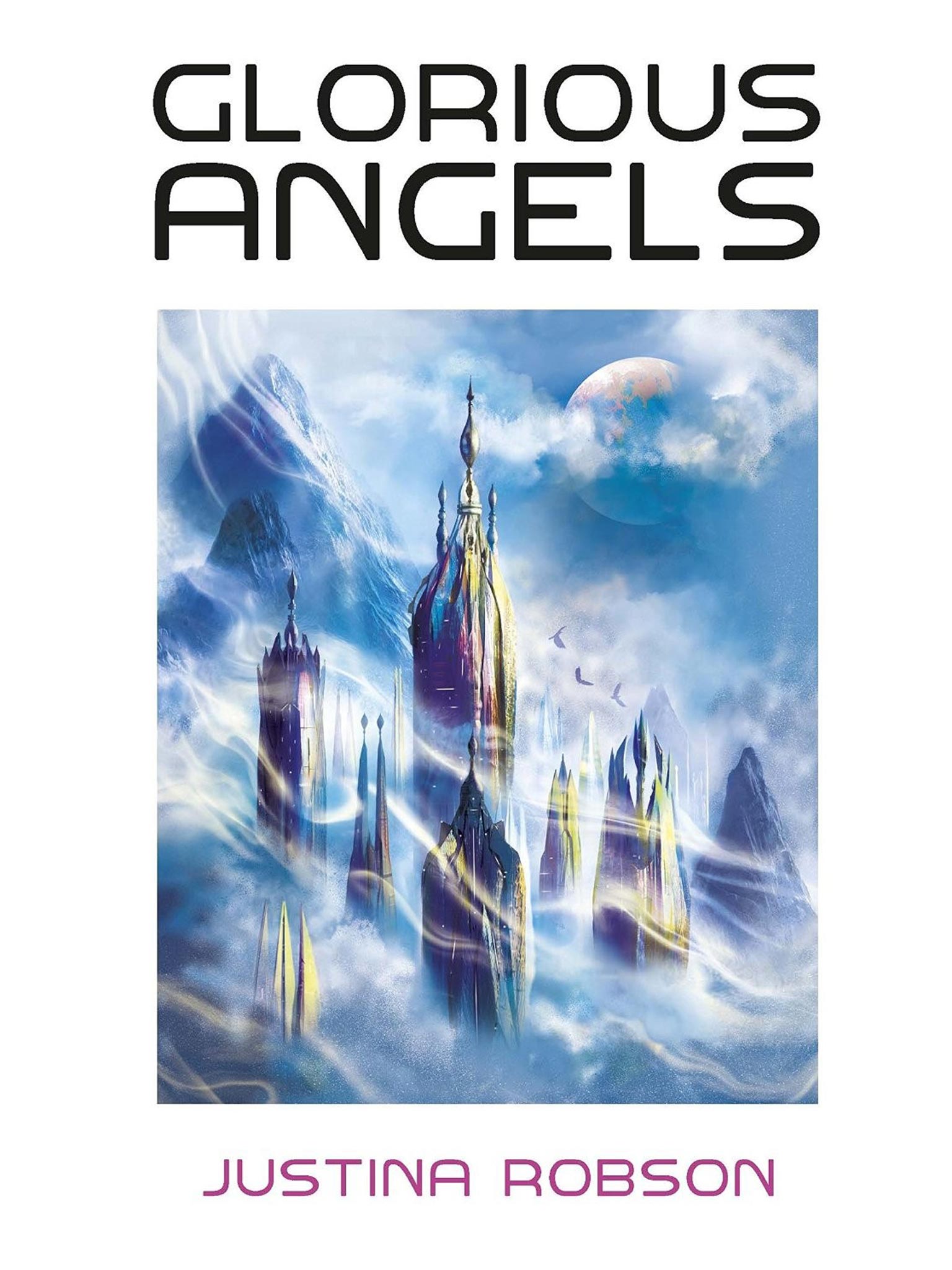Justina Robson: 'Women, give science fiction a chance'
Writing about women in SFF and horror is still a frustrating experience

Your support helps us to tell the story
From reproductive rights to climate change to Big Tech, The Independent is on the ground when the story is developing. Whether it's investigating the financials of Elon Musk's pro-Trump PAC or producing our latest documentary, 'The A Word', which shines a light on the American women fighting for reproductive rights, we know how important it is to parse out the facts from the messaging.
At such a critical moment in US history, we need reporters on the ground. Your donation allows us to keep sending journalists to speak to both sides of the story.
The Independent is trusted by Americans across the entire political spectrum. And unlike many other quality news outlets, we choose not to lock Americans out of our reporting and analysis with paywalls. We believe quality journalism should be available to everyone, paid for by those who can afford it.
Your support makes all the difference.In the late 1970s Theodore Sturgeon, a prolific writer and critic in the field of science fiction and fantasy (SFF), remarked: “All the good new SF writers are women, except for James Tiptree Jnr.”
Tiptree was renowned for muscular, powerful fiction, that no woman would dare to pen; the kind of fiction that strips souls and slices up reality with a steel, cut-throat razor. He was also a woman, Alice Bradley Sheldon: she took a male pen name and a whole writing persona from the top of a marmalade jar on her kitchen table when she became tired of “being the first woman in some damned occupation”.
A generation later, writing about women in SFF and horror is still a frustrating experience because at every turn there’s a sensation that we’ve been here before many times, as a special category within a domain perceived as essentially male. I’ve been asked about it since I was first published in 1999.
To address this ongoing situation there have been recent moves within the SFFH community to create parity and to raise consciousness. The community is an active group of creators and fans who gather regularly at conventions (and eternally online) to celebrate and critique the genres.
Fandom is united by a loose sense of familial belonging. Even though this is by no means the full marketplace for genre fiction, in any format it has been heartening to see equal representation embraced in our professional and organising bodies over the past couple of years.

However, outside the genre community where the “casual” bulk of the book-buyers exist, the figures tell a story of female author sales of 30 per cent. Since 1954 women have reached on average less than 20 per cent representation in genre awards, sometimes as low as 12 per cent, and this includes the fantasy genre in which the genders are roughly equal in their publication output.
Last November, a Goodreads poll indicated that female readers (who buy two thirds of all the books sold in Britain) rate books by women slightly higher than those by men. And yet, 2013 data from VIDA, which tracks women’s presence in the literary arts across the board, reflects the same old 30 per cent for visibility. So sci-fi sales for women are 10 per cent below the total literary average and that average is 20 per cent below parity.
But doesn’t this indicate that in sci-fi overall the sales and exposure merely reflect the population levels of sci-fi readership in the wider world? Men and women tend to stick to their own when picking authors – 90 per cent of the top 50 books read by men were by male authors, and vice versa for women, according to Goodreads.
It does look like this is a matter of self-selecting groups who fulfil the industry adage that sci-fi is supposed to appeal to males. I remember when my fourth novel was going through editorial one of the readers from my US publisher noted that it was full of strong resonances for her, what a pity that it should really resonate instead with teenage boys.
A friend tells me: “I was told by someone who has been in publishing a lot of years that the content of my books really didn’t matter. They put a woman [author] on the cover and that would determine sales. A man on the cover, any man, and sales would be higher.” If this is a belief at the publishing gateway level it’s hardly surprising that sales follow.
Some might conclude that it’s all the fault of the patriarchy. But at that level everything is the fault of the patriarchy because we’re living in it. The conceptual spaces of our minds have been carved up accordingly and re-jigging the balance requires work. Certain assets and areas are perceived to be masculine by default and SFF and horror are among those things. After that you keep on self-selecting and here we are. Plus ça change, eh?
When I was a tiddler I used to think it was only the French who had divvied up the world into masculine and feminine to make learning French difficult. Later, I figured out that the Spanish and the Italians had also been in on the decision at some kind of Ultimate Human Summit around 5,000BC, or when the dinosaurs were around. Now I think that within the twin grip of biology and culture something about patriarchy as a gendered power system is a done deal and we’re not escaping so fast. The task of analysing the “what” and the “why” and the “how” it originated is beyond me. Science may eventually figure it out as we slog against the institutionalised tide.
Speculating on it and the possibilities for difference is not beyond me, however. That’s where we sci-fi people are at. In the past, I’ve written a lot about Artificial Intelligence and cognitive science, but this subject has been on my mind a great deal over the past year as I decided to step where my foremothers had boldly trod and explore a matriarchy in my new novel. The plan was to be thoughtful and speculative, a more academic effort than the conservatives of sci-fi would recognise. But my book resiliently derailed itself on to tracks dealing with sex, power and biology.

As a result, I feel a certain grim expectation. The reason for this can be summed up by the experience of a fellow genre writer, Harry Connolly, who was told by a radio interviewer that he really liked Harry’s book, “because it wasn’t all about women and their sex lives”. Well, bad luck that man.
Writing about gender and power without writing about sex would be like finding an elephant with a laser rifle surfing on a shark inside your bedroom and then writing about what you had for breakfast.
I don’t mind if people who don’t like novels like mine don’t read it. Though such comments as, “This isn’t sci-fi because sci-fi is about manly things, like science and maths, and you’re ruining it with all your chintz and feelings” are so depressing, and I do mind very much about this seizing of an entire category.
Perhaps there is no detectable difference in the stories male and female authors make, only authors choosing their voice and point of view to appeal to particular audiences or projects. Perhaps the knowledge of who writes colours the way a thing is read or if it is read at all. I suspect a lot of women may not be reading SF for the old reasons – because boys’ toys. It’s them I appeal to. Try it out. The girls have been in the playroom and we customised a lot.
Join our commenting forum
Join thought-provoking conversations, follow other Independent readers and see their replies
Comments